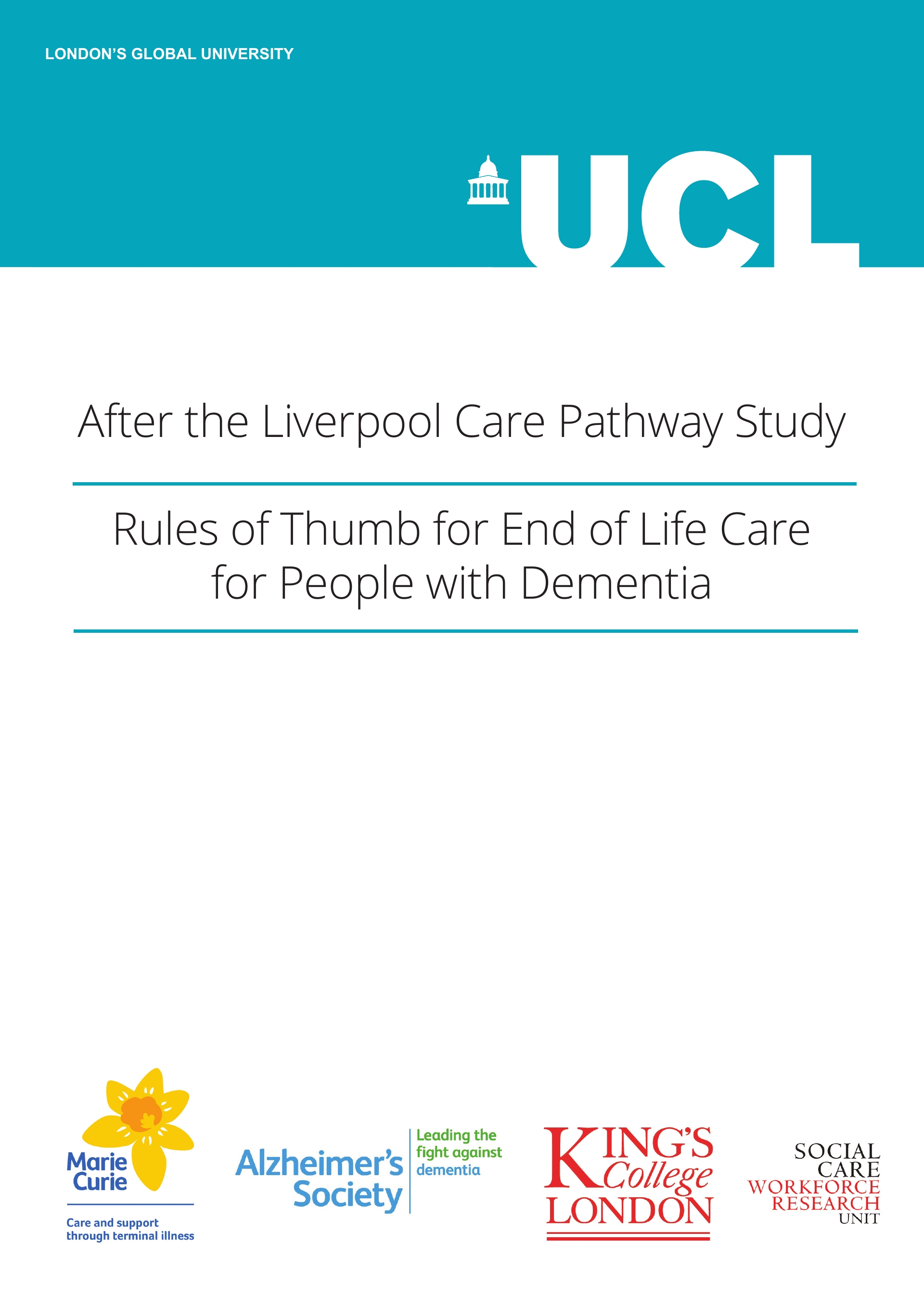
by Nathan Davies
Nathan Davies is a PhD student based within the Research Department of Primary Care and Population Health at University College London (UCL). He is working on a palliative care study called IMPACT and here reflects on the difficulties of recruiting general practitioners for the project in light of the changes at the National Health Service (NHS) in England.
IMPACT is a European study working across five different countries: England, Germany, Italy, the Netherlands and Norway. The aim is to improve the organisation of palliative care for people with dementia and/or cancer. In England the project is led by Professor Steve Iliffe from UCL working in collaboration with Professor Sam Ahmedzhai at the University of Sheffield, and Professor Jill Manthorpe from the Social Care Workforce Research Unit at King’s College London. As a researcher on this project I have been part-responsible for the recruitment of various organisations and services to participate in England at a time of massive upheaval and change. What we found was surprising to some extent; however, with hindsight it was not.
I work in a Primary Care research department with strong links to doctors and medical students interested in becoming general practitioners (GPs), yet despite this, our biggest headache in recruitment was in relation to general practice. Why is this? We are not one hundred percent sure and I really don’t think we have the answers about how to improve this; however, I can share some of the difficulties that we encountered. There are several possible reasons, which tend to demonstrate the huge pressures that our GPs are facing at the moment:
Time
GPs have so little time to see their patients, with us all wanting a piece of our GP’s valuable time and often wanting it now. Our GP services are so stretched that we find that fewer and fewer GPs seem to be able to afford the time to do additional work such as research and some struggle to make a home visit as often as would have been expected a few years back. Initiatives requiring GP surgeries to be open later in the evening and seven days a week may increase this sense of busyness. With the new role that some GPs are taking on within Clinical Commissioning Groups they are also having more of their time taken up with this. So when a researcher arrives in a health centre with a new research project, which also demands a piece of their time, then it is not such a surprise they are not quite so able to donate some of their time to work with researchers, despite being enthusiastic about research.
Incentives
Our Primary Care system in the UK rests on a basis of incentives, for example, the Quality and Outcomes Framework (QOF) points system. However, in our project we could not offer very large numbers of points or substantial financial inducements such as these. What we could offer was €1000 per site with additional service support costs, together with hopefully a valuable learning experience which could potentially help improve the organisation and patient service, but this was still not enough. Reflecting upon our attempts I think the closest we came to recruiting GPs was when we were discussing introducing a Locally Enhanced Service, which is again an incentive based system.
Taboo and stigmatization
Within the general public death is still very much a taboo and dementia is still stigmatized. It appeared that many of the GPs that we encountered would rather leave end of life care and palliative care to the specialists. Further to that, many would also rather pass over dementia care to the specialists, such as an old age psychiatrist.
Uncertainty pre–NHS transition
The turmoil over the proposed reorganisation of the NHS before April 2013 caused us huge difficulties. GPs were generally uncertain about what their position would be and therefore questioned whether they could pledge support to a research project which would be an additional commitment.
Confusion post–NHS transition
After April 2013 we still had big problems, indeed probably more problems than before April 2013. Post April 2013 not only were we unable to recruit as many GPs as we needed, we were not even able to arrange meetings or appointments with them to discuss the study. The changes introduced were not a smooth transition. People were left unclear about their roles, responsibilities and how they would go about completing their tasks, balancing a clinical role, commissioning role and for some a research role. Some GPs appeared to be placed in commissioning roles without real choice, and having limited knowledge of that field.
I hope that over the coming months the organisational environment will stabilise and GPs become less anxious, about the new organisations, amended systems, dementia and palliative care. We remain hugely grateful to those GPs and other organisations such as care homes and hospices who have joined this study in these challenging times.
Nathan Davies is a PhD student based within the Research Department of Primary Care and Population Health at University College London.
@ImpactProject1 | @NathanDavies50 | IMPACT website
 Dr Nathan Davies discusses Rules of Thumb for End of Life Care for People with Dementia. (954 words)
Dr Nathan Davies discusses Rules of Thumb for End of Life Care for People with Dementia. (954 words)